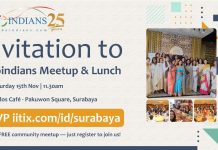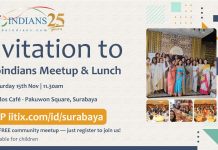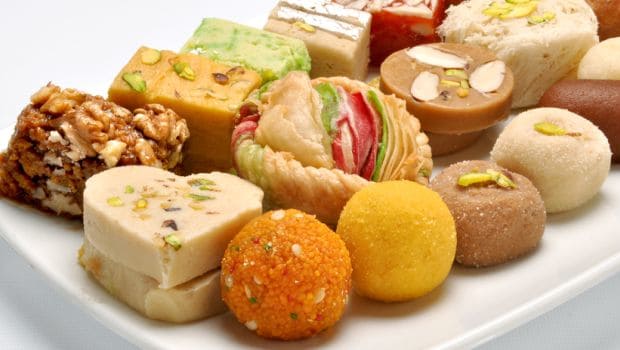The Ministry of Ayush has developed 42 Yoga poses as common yoga protocol for the IDY
Download the English Common Yoga Protocol of International Day of Yoga here>>
At a glance the protocol followed during the International Day of Yoga along with the 42 poses are as below:
 Prayer
Prayer- Sadilaja /CālanaKriyas/Loosening Practices
- Neck Bending
- Shoulder’s movement
- Trunk Movement
- Knee Movement
- Yogāsanas
A. Standing Posture
- Tādāsana
- Vrikśāsana
- Pāda-Hastāsana
- ArdhaCakrāsana
- Trikonāsana
B. Sitting Posture
- Bhadrāsana
- Vajrāsana/Veerāsana
- ArdhaUstrāsana(forbegginners)
- Ustrāsana
- Śaśākāsana
- UtthānaMandūkāsana
- Marichyāsana / Vakrāsana
C. Prone Postures
- Makarāsana
- Bhujangāsana
- Śalabhāsana
D. Supine Postures
- Śetubandhāsana
- Uttānapādāsana
- Ardhahalāsana
- Pavanamuktāsana
- Śavāsana
- Kapālabhāti
- Prānāyāma
- Nadiśodhana / AnulomaVilomaPrānāyāma
- ŚītalīPrānāyāma
- Bhramari Pranayama
- Dhyana
- Sankalpa
- SantihPātha
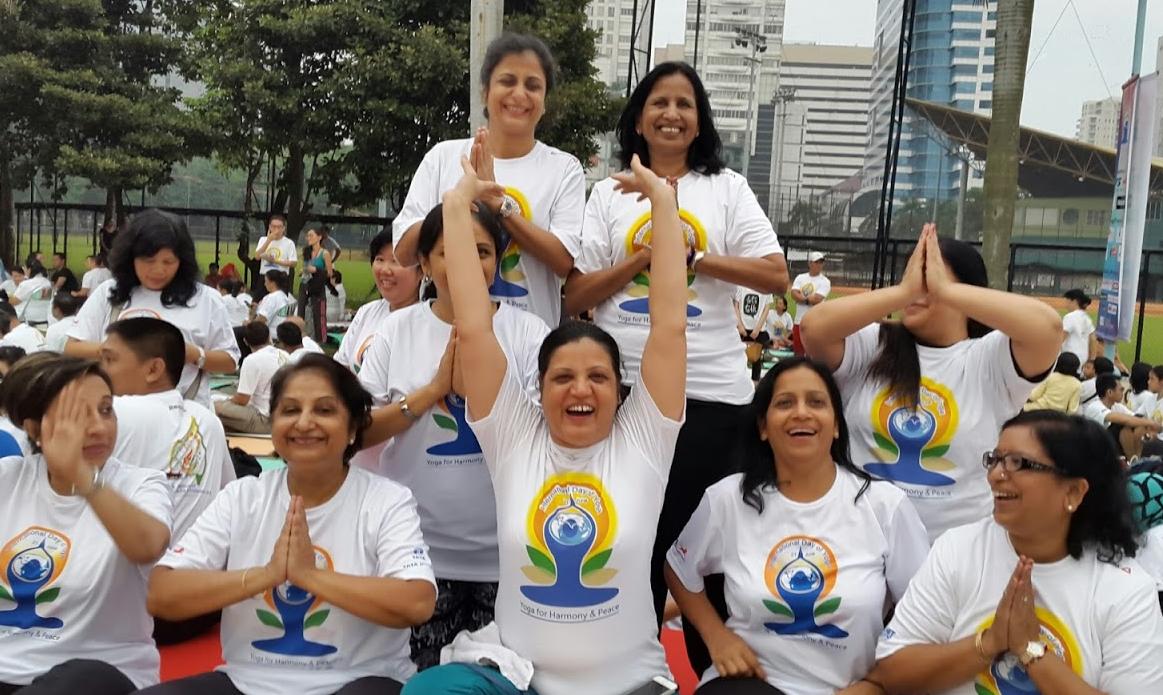 PRAYER
PRAYER
Yoga should start with prayer.
Samgacchadhvamsamvadadhvam
samvomanāmsijānatām
devābhāgamyathāpūrve
sanjānānāupāsate
May you move in harmony;
May you speak in unison;
Let our mind be equanimous like in the beginning;
Let the divinity manifest in your sacred endeavours.
SADILAJA/CALANA KRIYAS /LOOSENING PRACTICES
These are Yogic SuksmaVyāyāmas help to increase microcirculation.
- Forward and backward bending
- Right and left bending
- Right and left twisting
- Neck rotation
SHOULDER’S MOVEMENT
- Shoulder’s stretch
- SkandhaCakra (Shoulder rotation)
Benefits: Good for healthy shoulder, helpful in cervical spondylitis and frozen shoulder
TRUNK MOVEMENT
Trunk twisting (Katishaktiv Vikasak)
KNEE MOVEMENT
Benefits: Good for knee and hips joint.
YOGASANAS
STANDING POSTURES
Tadasana (Palm Tree Posture)
Tada means palm tree or mountain. It is a palm tree pose or mountain pose.
Benefits: Brings stability, good for spine, corrects faulty posture, increases height
Vriksasana (The Tree Posture)
Vriksa means tree. It looks like as a tree, hence the name.
Benefits: Improves neuro-muscular coordination, Good for balance and alertness, Tones up the leg muscles, Beneficial for ligaments
Precaution: Avoid in arthritis, vertigo and obesity
Padahastasana (The Hands to Feet Posture)
Pada means feet, hasta means hands. Here, one tries to touch the feet with palms.
Benefits: Spine flexibility, Improves digestion, Prevents constipation, Good for menstrual problems
Precaution: Avoid in cardiac or back problems, abdominal inflammation, hernia and ulcers, and during pregnancy, skip in disc disorders
Ardha Chakrasana (The Half Wheel Posture)
Ardha means half. Chakra means wheel where the body takes the shape of a half wheel.
Benefits: Spine flexibility, Strengthens the neck muscles, Improves breathing capacity, Helps in cervical spondylitis
Precaution: Avoid in vertigo and hypertension
Trikonasana (The Triangle Posture)
Trikona means triangle where Tri means three and kona is an angle.
Benefits:Weight loss, Prevents flat foot, Strengthens leg muscles, Spine flexibility, Improves lungs capacity
Precaution: Avoid in slipped disc, sciatica, and abdominal surgery
SITTING POSTURES
Bhadrasana (The Firm/Auspicious Posture)
Benefits:Good for stable mind, Keeps the knees and hip joints healthy, Relieves knee pain, Abdominal relaxation, Eases pain in menstruation
Precaution: Avoid in arthritis and sciatica
Vajrasana (Thunderbolt Posture)
Benefits: Meditative postures, Strengthens thigh and calf muscles, Good for digestion, Healthy spine
Precaution: Don’t practice in piles, knee pain and ankle injury
Ardha Ustrasana(The Half Camel Posture)
Ustra means camel where the back looks like as camel hump
Benefits: Strengthen back and neck muscles, Constipation, Increases blood circulation to head, Useful for cardiac patient
Precaution: Avoid in hernia and abdominal injuries and pregnancy
Ustrasana (Camel Posture)
Ustra means camel where the body resembles that of a camel
Benefits: Useful for defective eyesight, Relieves back pain and neck pain, Reduces fat over the abdomen, Helpful in digestive problems
Precautions: Avoid in high blood pressure, heart disease and hernia
Sasakasana (The Hare Posture)
Benefits: Reduce stress and anger, Tones up reproductive organs, Relieves constipation, Improves digestion
Precaution: Avoid in backache, Skip in knee injury, Avoid in high blood pressure
UttanMandukasana (Stretched up-frog posture)
Uttāna mean upright and Mandūka means frog. In the final position, it resembles as an upright frog.
Benefits: Helpful in backache, Improves lungs capacity
Precaution: Avoid in knee joint pain
Vakrasana (The Spinal Twist Posture)
In Vakrasana, the spine is twisted.
Benefits: Increases spinal flexibility, Eases constipation, Stimulates pancreas
Precaution: Avoid in severe back pain, Skip in abdominal surgery and menstruation
PRONE POSTURES
Makarasana (The Crocodile Posture)
Here the body looks like as a crocodile
Benefits: Good for relaxation, Treats back pain, Counter stress and anxiety
Precaution: Avoid in low blood pressure, severe cardiac problems, Pregnancy
Bhujangasana (The Cobra Posture)
Here the body resembles like the hood of a snake.
Benefits: Best for stress management, reduces abdominal fat and alleviates constipation, helps to remove backache and bronchial problems
Precaution: Avoid in abdominal surgery, hernia, ulcers
Salbhasana (The Locust Posture)
Benefits: Helps in sciatica and lower backache, Tones the hip muscles, Good for kidney, Helps in weight loss, Good for digestion
Precaution: Avoid having cardiac problems, Avoid in high blood pressure, Skip in peptic ulcers and hernia
SUPINE POSTURES
Setubandhasana (The Bridge Posture)
The body looks like as a bridge.
Benefits: Relieves depression and anxiety, Strengthens lower back muscles, Improves digestion
Precaution: Avoid in ulcers and hernia, pregnancy
Uttanpadasana (Raised feet posture)
Here the legs are raised upward in supine position, hence, the name.
Benefits: Balances the navel centre, Helpful for abdominal pain and indigestion, Builds abdominal muscles, Overcomes nervousness and anxiety
Precaution: Avoid in hypertension
Ardhahalasana (Half plough posture)
This posture is known as Ardhahalasana because in its final position, the body resembles half the shape of an Indian plough.
Benefits: Beneficial for dyspepsia and constipation, Useful in diabetes and piles, Good for hypertension
Precaution: Avoid in back pain, abdominal injuries
Pavanmuktasana (The Wind Releasing Posture)
It’s a gas releasing pose.
Benefits: Removes constipation, Aids digestion, Tones up the back muscles
Precaution: Avoid in abdominal injuries and hernia
Savasana (The Dead Body Posture)
In the final position, the body resembles like a dead body
Benefits: Relieve all kinds of tensions, Relaxes psycho-physiological system, Beneficial in the management of stress and its consequences
Kapalbhati
Benefits: Helps to overcome cough disorders, Useful in treating cold, rhinitis, sinusitis, asthma and bronchial infections, Strengthens the nervous system
Precaution: Avoid in cardiac conditions, high blood pressure, vertigo, chronic bleeding in the nose, epilepsy, migraine, stroke, hernia and gastric ulcers
PRANAYAMA
Nadishodhanaor AnulomaViloma Pranayama (Alternate Nostril Breathing)
Benefits: Purifies nadi’s; thus nourishes the whole body, Induces tranquillity and helps to improve concentration. Increases vitality and lowers the level of stress and anxiety, It elevates cough disorders.
Sitali Pranayama
Sitali is a calming and cooling pranayama.
Benefits: Purifies blood, has cooling effect on body, good in case of blood pressure, relieves indigestion, good for skin and eyes
Precaution: Avoid in cold, cough or tonsillitis
Bhramri Pranayama
Benefits: Relives stress; alleviates anxiety, anger and hyperactivity; good for nervous system, helps to manage stress, enhances concentration
Precaution:Avoid in case of nose and ear infections
DHYANA
Meditation is an act of continuous contemplation.
Benefits:Meditation is the most important component of Yoga. Helps to eliminate negative emotions likefear, anger, depression, anxiety, keeps the mind calm and quiet, increases concentration and memory; rejuvenates the whole body and leads to self-realisation


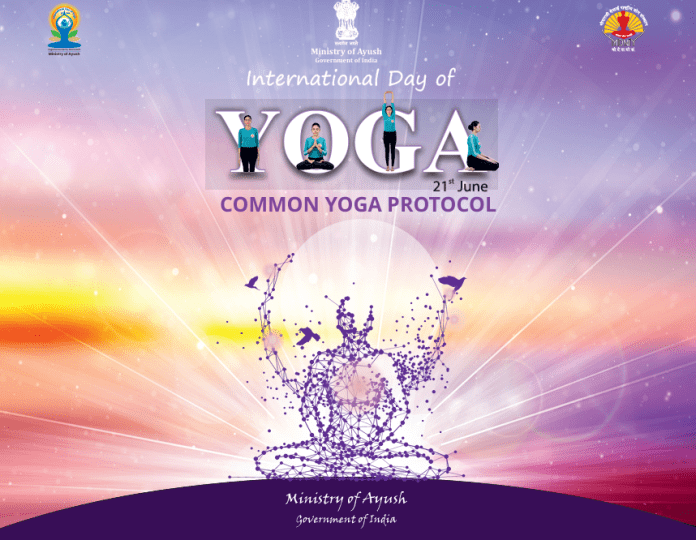
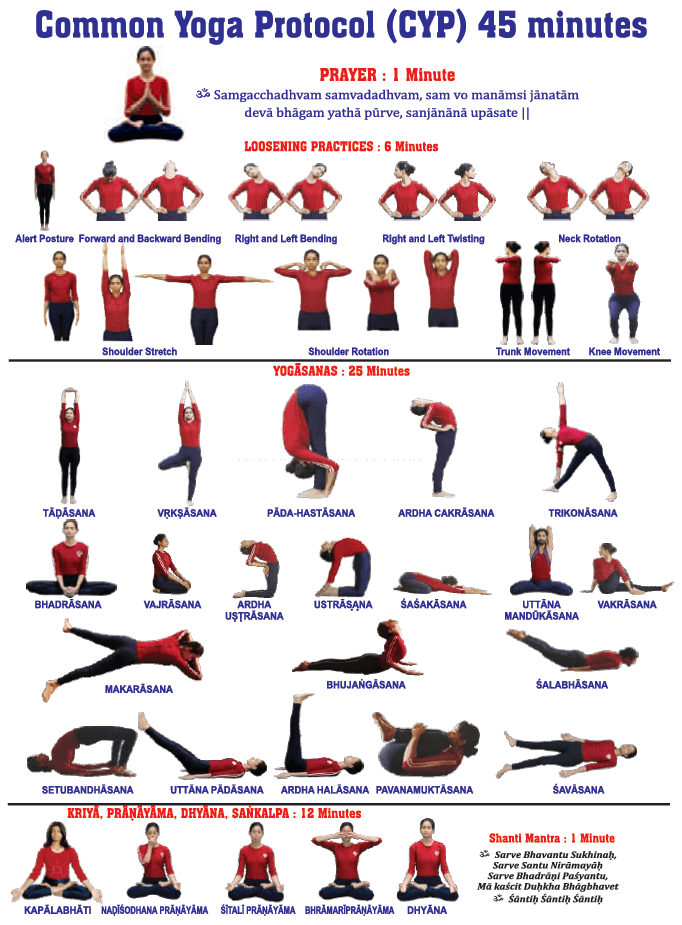 Prayer
Prayer